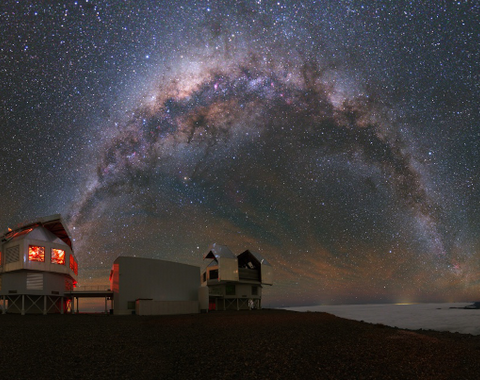2023 Astronomy Lecture Series

Each year the Observatories organizes a series of public lectures on current astronomical topics. These lectures are given by astronomers from the Carnegie Observatories as well as other research institutions. The lectures are geared to the general public and are free.
2023 Season
Monday evenings: April 10, April 24, May 8 and May 22.
AT THE HUNTINGTON LIBRARY, ART COLLECTIONS, AND BOTANICAL GARDENS
1151 Oxford Road, San Marino
All Lectures are in Rothenberg Auditorium. The simulcast room adjacent to the Auditorium will also accommodate overflow attendance. Directions can be found here.
The lectures are free. Because seating is limited, however, reservations are required for each lecture through Eventbrite (links below). Additionally, the lectures will be streamed live through Livestream and simultaneously on our Facebook CarnegieAstro page. For information, please call 626-304-0250.
Doors open at 6:45 p.m. Each Lecture will be preceded by a brief musical performance by students from The Colburn School starting at 7:00 p.m. Lectures start at 7:30 p.m. Light refreshments will be available.
Schedule
Dr. Kyle Kremer
NASA Einstein Fellow, Carnegie Institution for Science and Caltech
The dense centers of globular clusters host a whole zoo of exotic phenomena, from the coalescence of black hole pairs driven together by gravitational wave emission, to the tidal disruption of stars that wander too close to one another, to fast radio bursts of unknown astrophysical origin. Kremer will discuss his efforts to build computational models of globular clusters and what these models have revealed about the lives of compact objects—black holes, neutron stars, and white dwarfs—within these dense stellar environments.
Watch recordingDr. Jane Rigby
Astrophysicist, JWST Operations Project Scientist, NASA Goddard Space Flight Center
Telescopes are time machines. Rigby will describe how astronomers can use cosmic telescopes—and, especially, the new James Webb Space Telescope, which is the most powerful infrared telescope ever built. She will provide a first-hand account of the extraordinary breadth and the depth of the Webb science program, along with a few human stories about how the Webb got working—and celebrate the people who made this landmark event a reality
Watch recordingDr. Abigail Polin
Postdoctoral Research Fellow, Carnegie Institution for Science and Caltech
100 years ago, Carnegie astronomer Edwin Hubble made a discovery from Mount Wilson that would change how we think of our place in the universe forever. The discovery of a variable star in the Andromeda galaxy allowed Hubble to establish conclusively that Andromeda is indeed a separate galaxy from the Milky Way. Join Polin as she discusses the history of astronomical distance measures, how we use them to map the universe, and open mysteries that puzzle us today.
Watch recordingDr. Ethan Nadler
Postdoctoral Fellow, Carnegie Institution for Science and University of Southern California
Most of the matter in the universe is dark. To date, all evidence for dark matter is based on how it affects visible matter, like stars and galaxies, through gravity. Nadler will discuss the search for dark matter physics in the sky, and how next-generation telescopes will help us understand its fundamental nature.
Watch recording